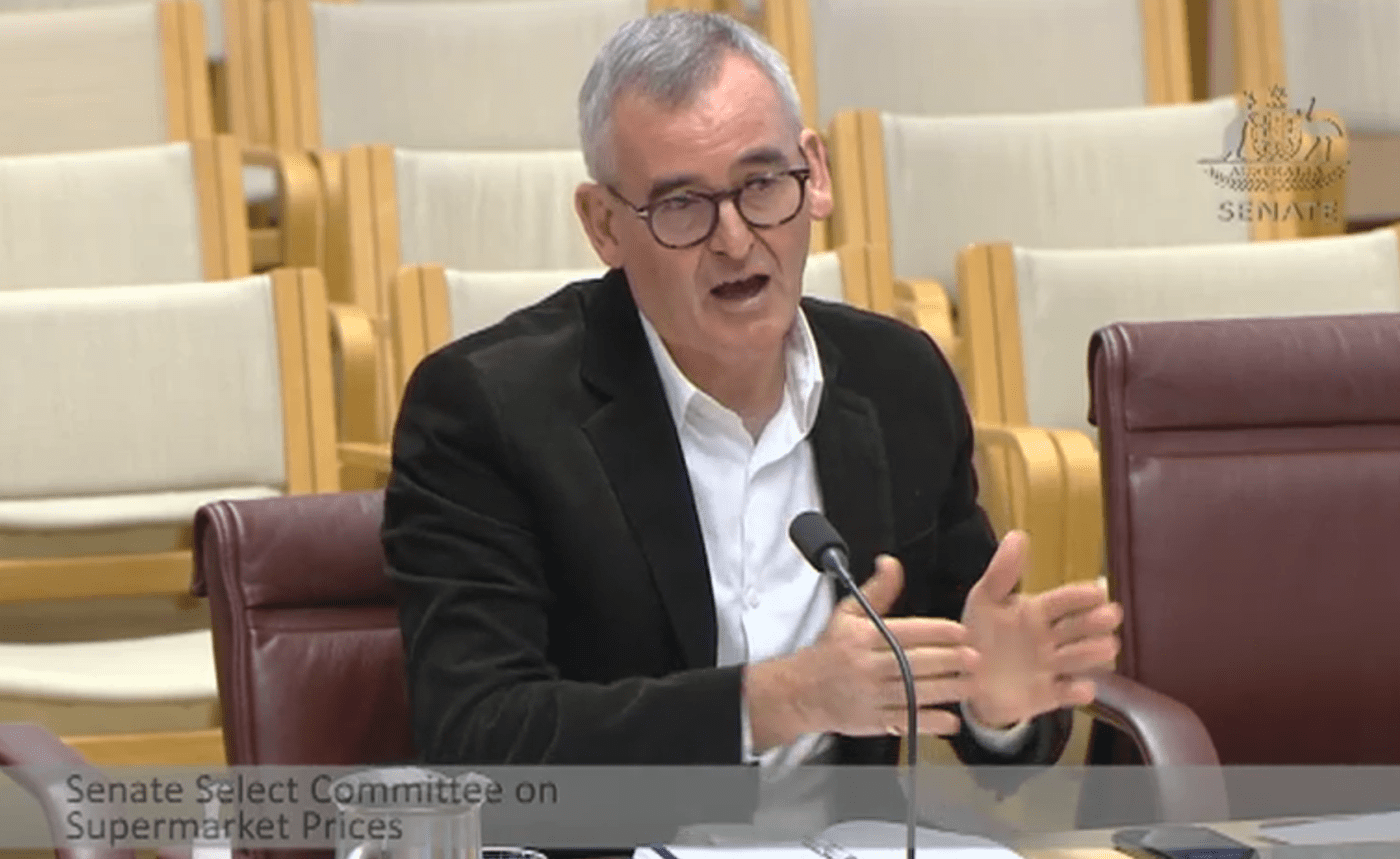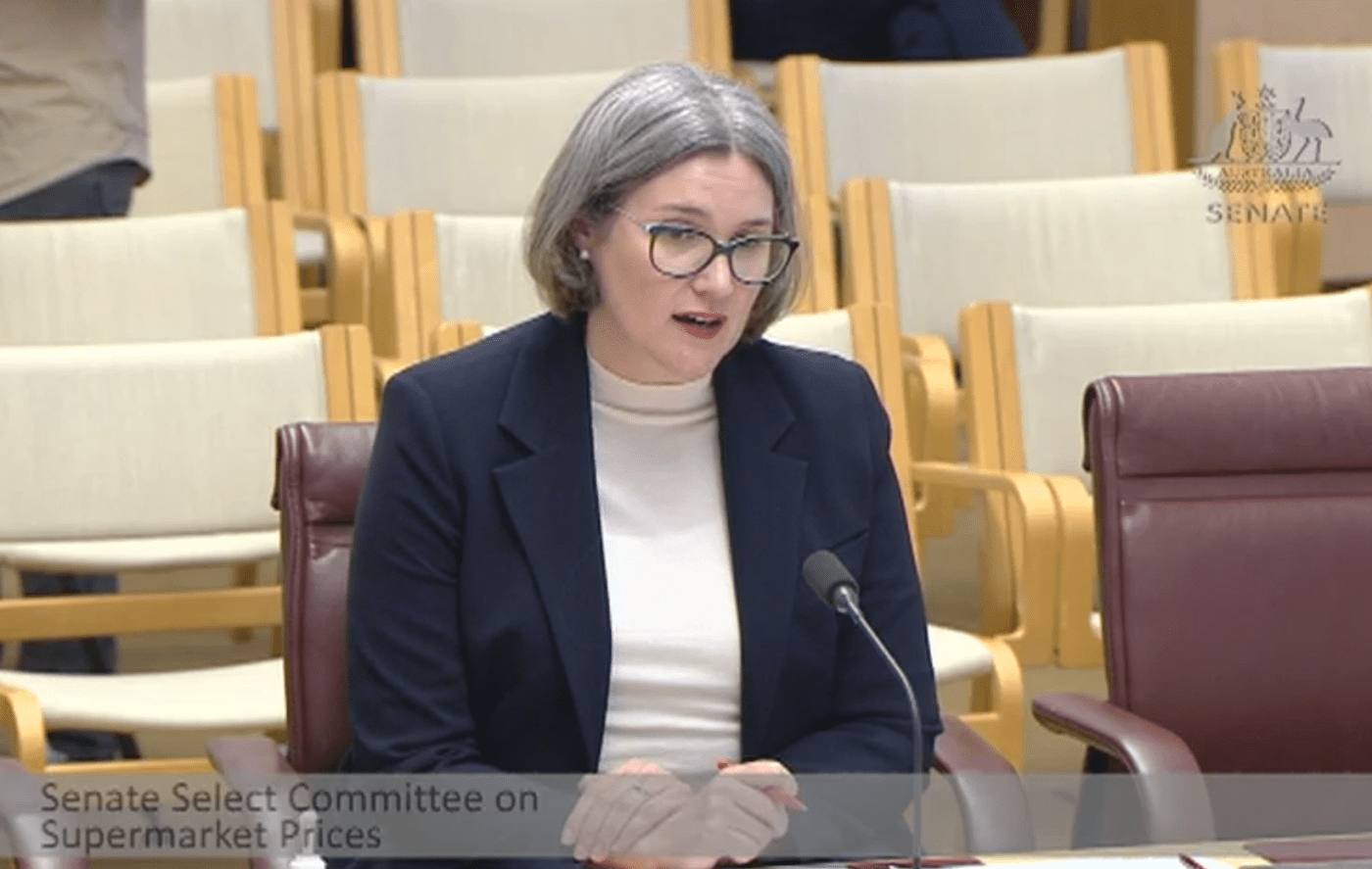SUPERMARKET bosses have fronted a senate inquiry into price setting practices and market power held by the industry’s biggest operators.
 The senate investigation is one of many inquiries looking currently into supermarkets after multiple allegations of price gouging and ripping off suppliers.
The senate investigation is one of many inquiries looking currently into supermarkets after multiple allegations of price gouging and ripping off suppliers.
Many from the beef industry have made written submissions to the inquiry since it was opened in December 2023 – with some raising concerns about the price setting practices for red meat and many commending their good relationships with the two biggest supermarkets.
The grassfed industry’s peak body Cattle Australia appeared before the inquiry last month calling for more transparency on the elements that make up retail meat prices.
Today it was Woolworths and Coles’ chance to front the inquiry and respond directly to the allegations.
Woolworths’ outgoing chief executive officer Brad Banducci was the first to front the inquiry with a fiery exchange with Greens Senator and committee chair Nick McKim. Senator McKim wanted to know Woolworths’ return on equity and Mr Banducci argued it was irrelevant and return on investment was a more fitting marker.
After the question was repeated many times and a threat was made to hold him in contempt of the inquiry, the supermarket boss agreed to take the question on notice.
Most of the conversation about suppliers were about fruit and vegetable pricing rather than meat pricing.
One of the points Mr Banducci was keen to make was that Woolworths was a high turnover/low margin business and keeping checkout prices low was central to its business strategy.
“We rely on our customers; they are our lifeblood for us to be successful. If we do not get sales and if we don’t create value than they don’t shop with us,” he said.
Non-perishable groceries causing the most inflation, Woolworths
Labor senator Glenn Sterle said comparing supermarkets in his home of Fremantle, Western Australia, showed Woolworths and Coles had cheaper groceries in general than the stores serviced by wholesaler Metcash.
Mr Banducci said that was case in many areas because Woolworth had standardised pricing across its stores – varying from a countrywide system for non-perishable goods and state-by-state system for fruit and vegetables.
While red meat was not mentioned, Beef Central has looked at prices through the online shopping portal and has found little evidence of state-to-state price variances for meat.
“Most of the price inflation we have experienced is in long-life groceries, it’s packaged products in the isles,” Mr Banducci said.
“In-particular, with non-food-based products like dishwashing tablets or whatever the case may be.”
Many business costs going up, Coles
Early this afternoon, Coles CEO and managing director Leah Weckert was grilled about its margins and how the company responds to requests for price increases.
Ms Weckert said when price increases are requested by suppliers, the company goes through a process of validating the reasoning for the increase mainly through looking at independent data and indicators. She said if the request is validated Coles accepts the increase.
“In the last couple of years, we have seen an unprecedented amount of cost price increases come through and in the vast majority of cases they have been validated,” she said.
“We we have to make the decision about what is the increase or change to the retail price charged to the customer. There are multiple factors that are taken into account for that.
“One aspect would be the amount of the cost increase that has come through from the supplier, another would the price in terms of where we will be placed from a competitive perspective, we would also consider things like the importance of that product to the customer and whether we make an investment in value which would mean not all of that increase is passed on.”
Ms Weckert said the “vast majority” of cost increases have been either passed in in full or partially to the customer. She said the increase in costs has had an impact on overall profit in the past year.
“Our net profit after tax margins have remained relatively consistent over time and if I look at the period between 2022-23, the most recent year, we actually saw a decline in our net profit after tax,” she said.
“This would indicated that the additional costs within our business, which have been a feature of all food and grocery supply chains across, have impacted our margins.”
The inquiry is continuing.







HAVE YOUR SAY